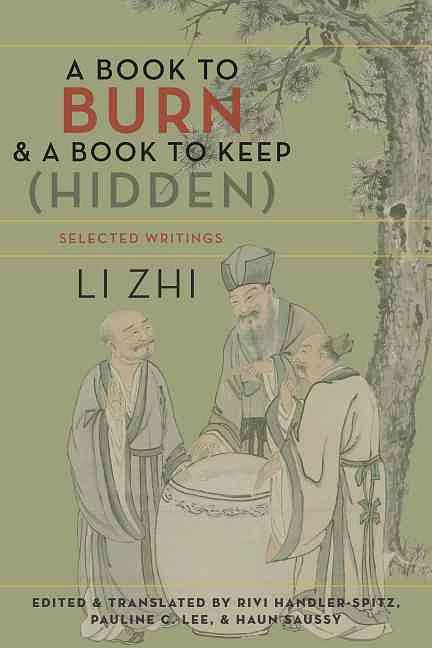內容簡介
內容簡介 Li Zhi's heretical writings caught fire among his contemporaries, despite an imperial ban on their publication. Translated for the first time into English,A Book to Burn and a Book to Keep (Hidden) confronts accepted ideas about gender, questions the true identity of history's heroes and villains, and offers transgressive readings of Confucius, Laozi, and the Buddha. Readers encounter the best of this heterodox intellectual's vital contribution to Chinese thought and culture. Li Zhi's iconoclastic interpretations of history, religion, literature, and social relations have fascinated Chinese intellectuals for centuries. His approach synthesized Confucian, Buddhist, and Daoist ethics and incorporated the Neo-Confucian idealism of such thinkers as Wang Yangming (1472�1529). The result was a series of heretical writings that caught fire among Li Zhi's contemporaries, despite an imperial ban on their publication, and intrigued Chinese audiences long after his death. Translated for the first time into English, Li Zhi's bold challenge to established doctrines will captivate anyone curious about the origins of such subtly transgressive works as the sixteenth-century play The Peony Pavilion or the eighteenth-century novel Dream of the Red Chamber. In A Book to Burn and a Book to Keep (Hidden), Li Zhi confronts accepted ideas about gender, questions the true identity of history's heroes and villains, and offers his own readings of Confucius, Laozi, and the Buddha. Fond of vivid sentiment and sharp expression, Li Zhi made no distinction between high and low literary genres in his literary analysis. He refused to support sanctioned ideas about morality and wrote stinging social critiques. Li Zhi praised scholars who risked everything to expose extortion and misrule. In this sophisticated translation, English-speaking readers encounter the best of this heterodox intellectual's vital contribution to Chinese thought and culture.
作者介紹
作者介紹 Li Zhi (1527�1602), also known as Li Zhuowu, was a controversial philosopher, historian, and author of the late Ming Dynasty. A critic of the Cheng-Zhu School of Neo-Confucian thought, he was ultimately arrested for heresy and, rather than suffer exile, committed suicide in prison.Rivi Handler-Spitz is assistant professor of Asian languages and cultures at Macalester College. She is the author of Symptoms of an Unruly Age: Li Zhi and Cultural Manifestations of Early Modernity (2017).Pauline C. Lee is assistant professor of Chinese religions and culture at Saint Louis University. Her publications include Li Zhi, Confucianism, and the Virtue of Desire (2013).Haun Saussy is University Professor at the University of Chicago. He is the author of The Problem of a Chinese Aesthetic (1993), Great Walls of Discourse and Other Adventures in Cultural China (2002), and The Ethnography of Rhythm (2016), as well as a number of coedited collections.
